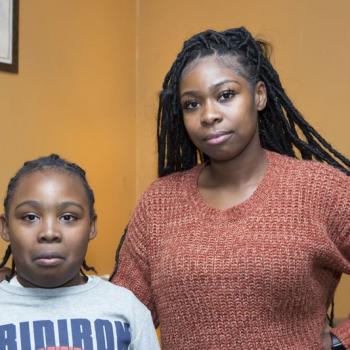You have to go to school now to learn??
Looking for a wild-and-crazy time at college? Don’t sign up for Justin McDaniel’s religious studies class.
The associate professor’s course on monastic life and asceticism gives students at the University of Pennsylvania a firsthand experience of what it’s like to be a monk.
At various periods during the semester, students must forego technology, coffee, physical human contact and certain foods. They’ll also have to wake up at 5 a.m. without an alarm clock.
That’s just a sample of the restrictions McDaniel imposes in an effort to help students become more observant, aware and disciplined. Each constraint represents an actual taboo observed by a monastic religious order.
“I’ve found in the past that students take this extremely seriously,” said McDaniel, who has taught the class twice before. “I’ve had very few people who try to get away with things, and you can always tell when they are.”
The discipline starts with a dress code for class: White shirts for the men, black shirts for women, and they must sit on opposite sides of the class. No makeup, jewelry or hair products. Laptops are prohibited; notes can be taken only with paper and pen. And don’t even think of checking your cellphone for texts or email.
The course, which focuses primarily on Catholic and Buddhist monastic traditions, stems in part from McDaniel’s own history. An expert on Asian religions, he spent a portion of his post-undergraduate life nearly 20 years ago as a Buddhist monk in Thailand and Laos and says he’s both a practicing Buddhist and a practicing Catholic.
Restrictions outside class are introduced gradually: Students sacrifice caffeine and alcohol during one week, then swear off vegetables that grow underground in another. The latter rule stems from an extremely non-violent sect that eschews such produce because uprooting the food could kill insects, McDaniel said.
The real test is a full month of restrictions that begins in mid-March. Students can only eat food in its natural form; nothing processed. They can’t eat when it’s dark, nor speak to anyone while they eat. They must be celibate, foregoing even hugs, handshakes and extended eye contact. No technology except for electric light. They can read for other classes, but news from the outside world is forbidden.
So why would anyone sign up? It could be because McDaniel requires no term papers or exams. But sophomore Madelyn Keyser, 20, of Castro Valley, California, said that’s misleading.
“In reality, it’s much harder because your grade is based entirely on your participation and your integrity,” said Keyser. As a nursing major at the Ivy League school in Philadelphia, Keyser said she hopes the class will help her become more observant and a better listener to her patients.












